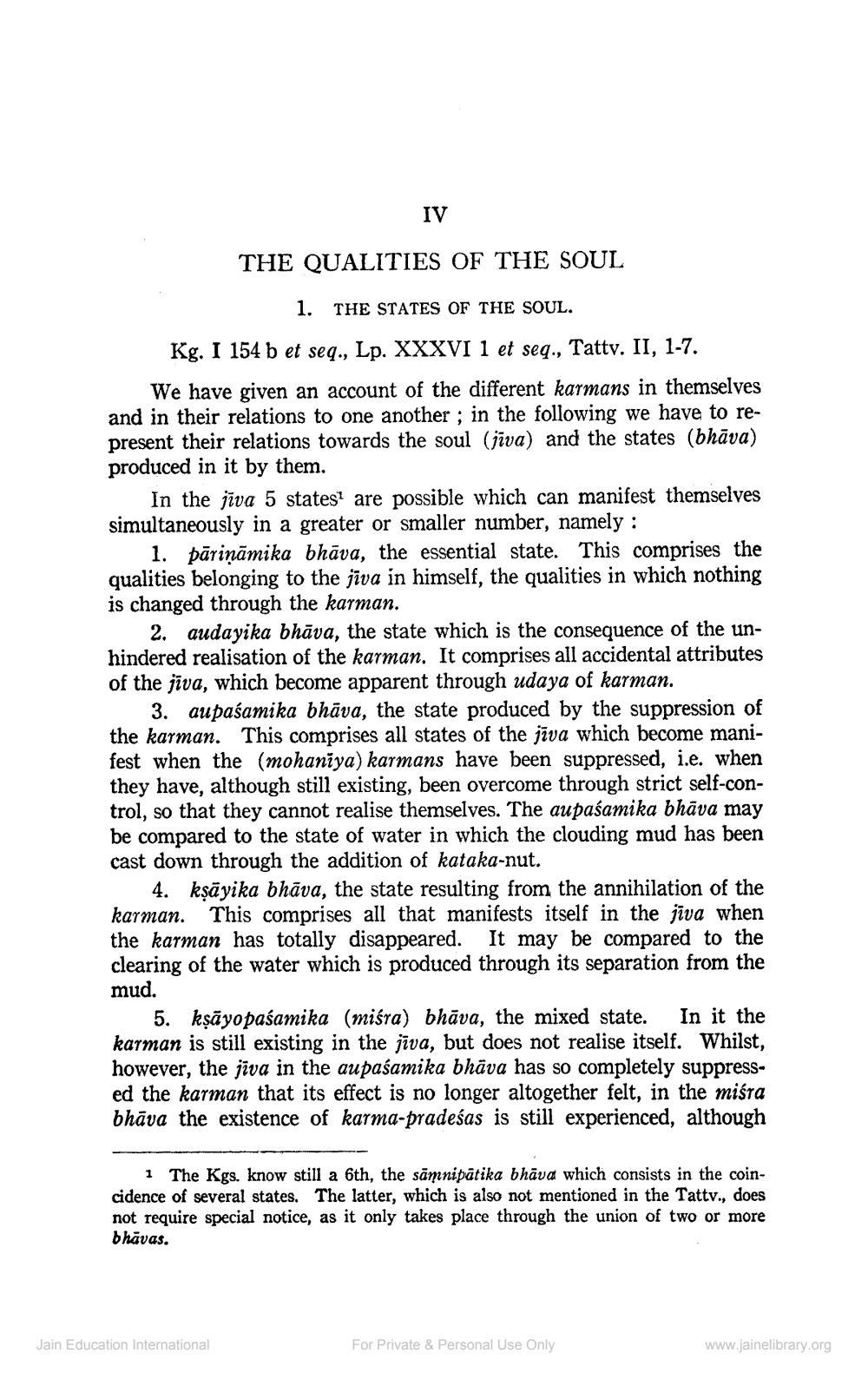________________
IV
THE QUALITIES OF THE SOUL
1. THE STATES OF THE SOUL. Kg. I 154 b et seq., Lp. XXXVI 1 et seq., Tattv. II, 1-7.
We have given an account of the different karmans in themselves and in their relations to one another; in the following we have to represent their relations towards the soul (jiva) and the states (bhāva) produced in it by them.
In the jiva 5 states are possible which can manifest themselves simultaneously in a greater or smaller number, namely :
1. pārināmika bhāva, the essential state. This comprises the qualities belonging to the jiva in himself, the qualities in which nothing is changed through the karman.
2. audayika bhāva, the state which is the consequence of the unhindered realisation of the karman. It comprises all accidental attributes of the jiva, which become apparent through udaya of karman.
3. aupaśamika bhāva, the state produced by the suppression of the karman. This comprises all states of the jiva which become manifest when the (mohaniya) karmans have been suppressed, i.e. when they have, although still existing, been overcome through strict self-control, so that they cannot realise themselves. The aupaśamika bhāva may be compared to the state of water in which the clouding mud has been cast down through the addition of kataka-nut.
4. kṣāyika bhāva, the state resulting from the annihilation of the karman. This comprises all that manifests itself in the jīva when the karman has totally disappeared. It may be compared to the clearing of the water which is produced through its separation from the mud.
5. ksãyopaśamika (miśra) bhāva, the mixed state. In it the karman is still existing in the jīva, but does not realise itself. Whilst, however, the jiva in the aupaśamika bhāva has so completely suppressed the karman that its effect is no longer altogether felt, in the mista bhāva the existence of karma-pradeśas is still experienced, although
1 The Kgs. know still a 6th, the samnipātika bhāva which consists in the coincidence of several states. The latter, which is also not mentioned in the Tattv., does not require special notice, as it only takes place through the union of two or more bhāvas.
Jain Education International
For Private & Personal Use Only
www.jainelibrary.org




